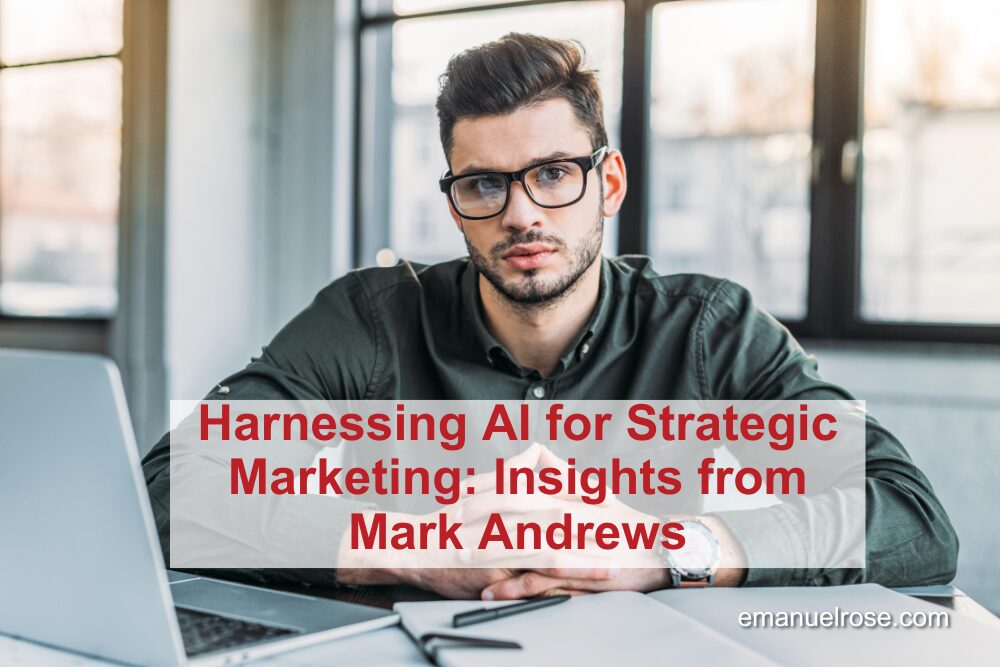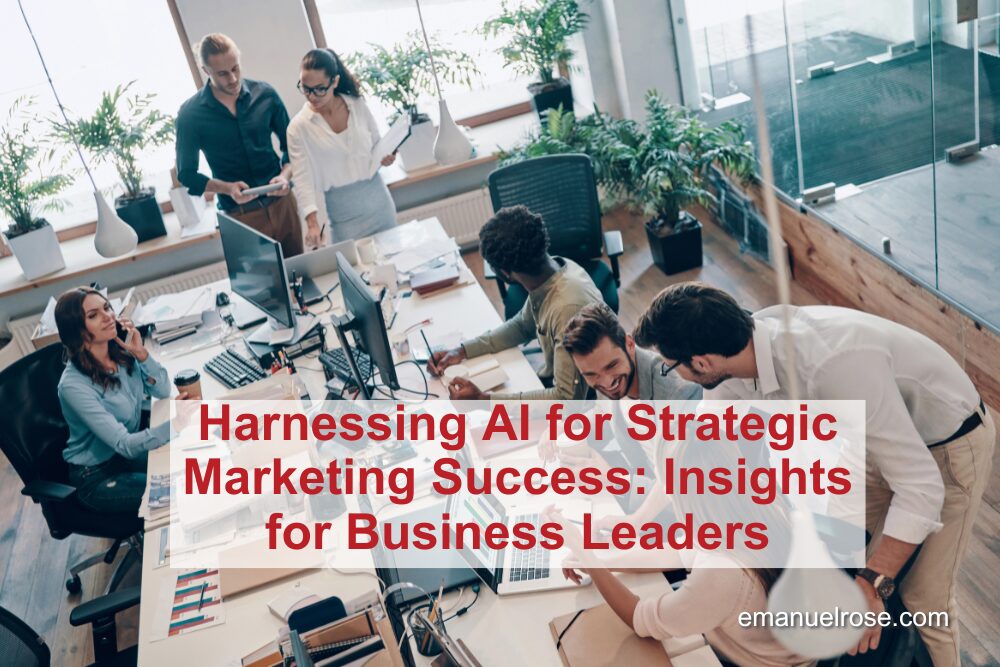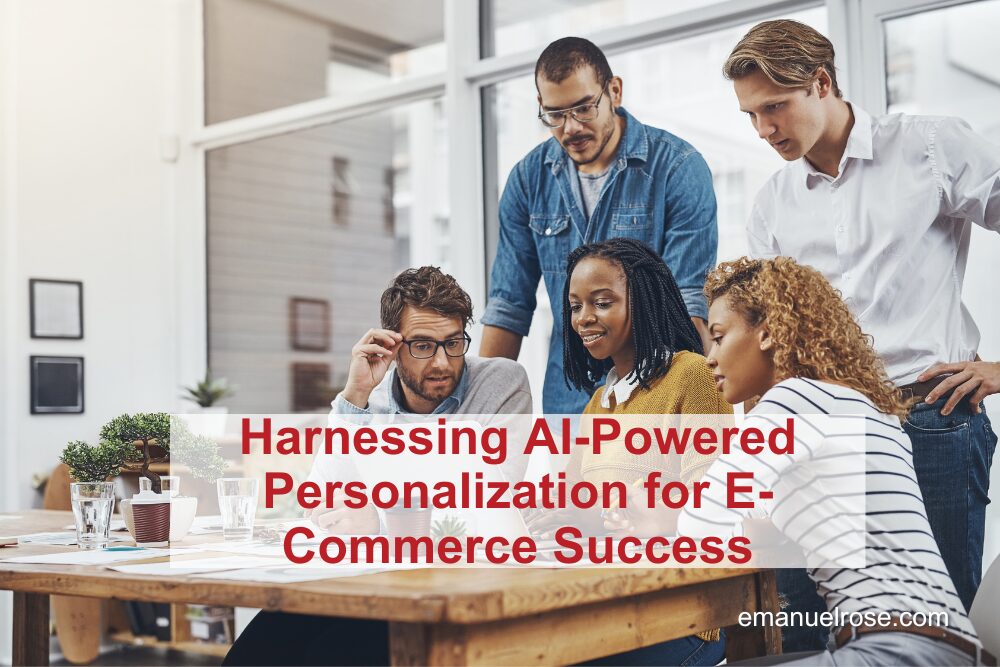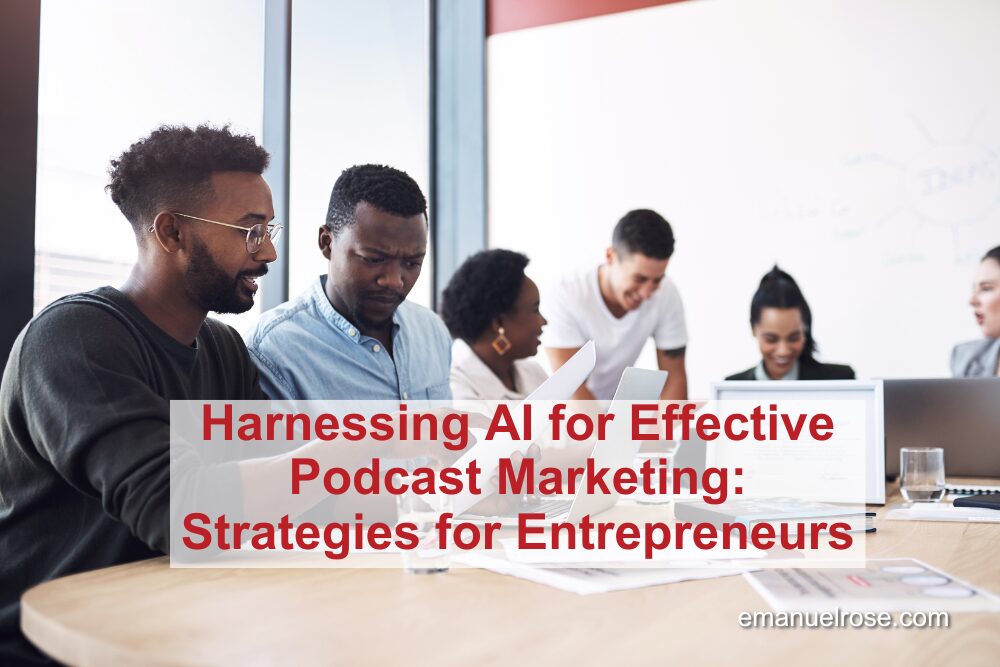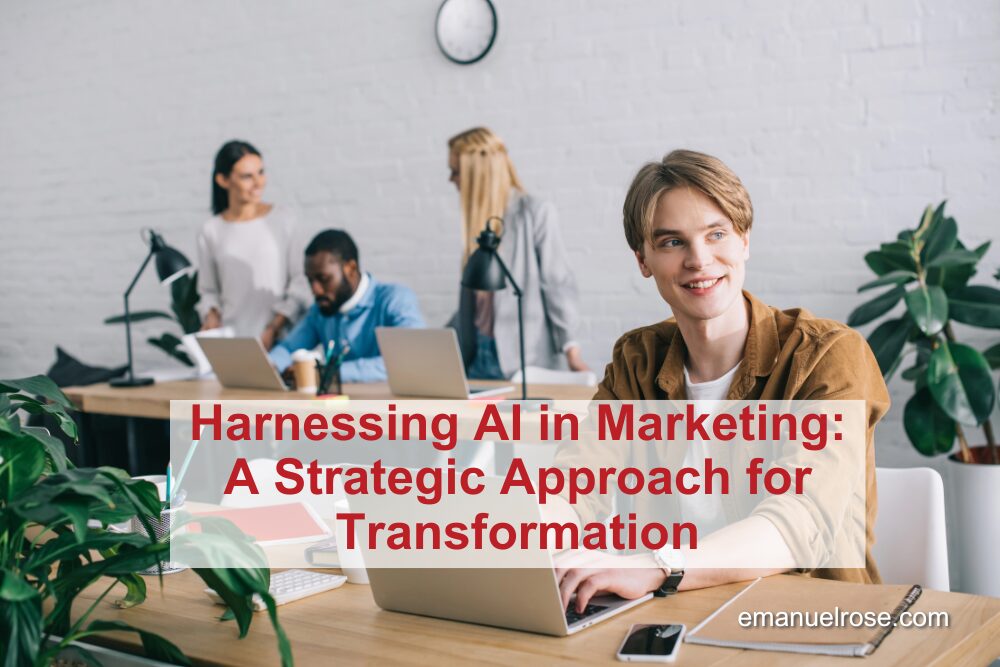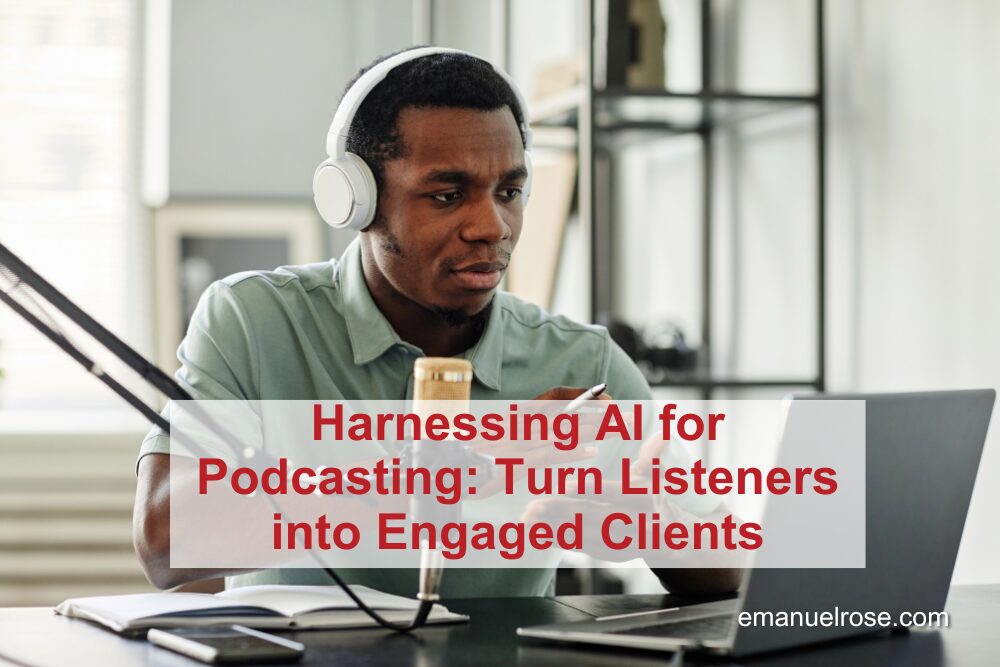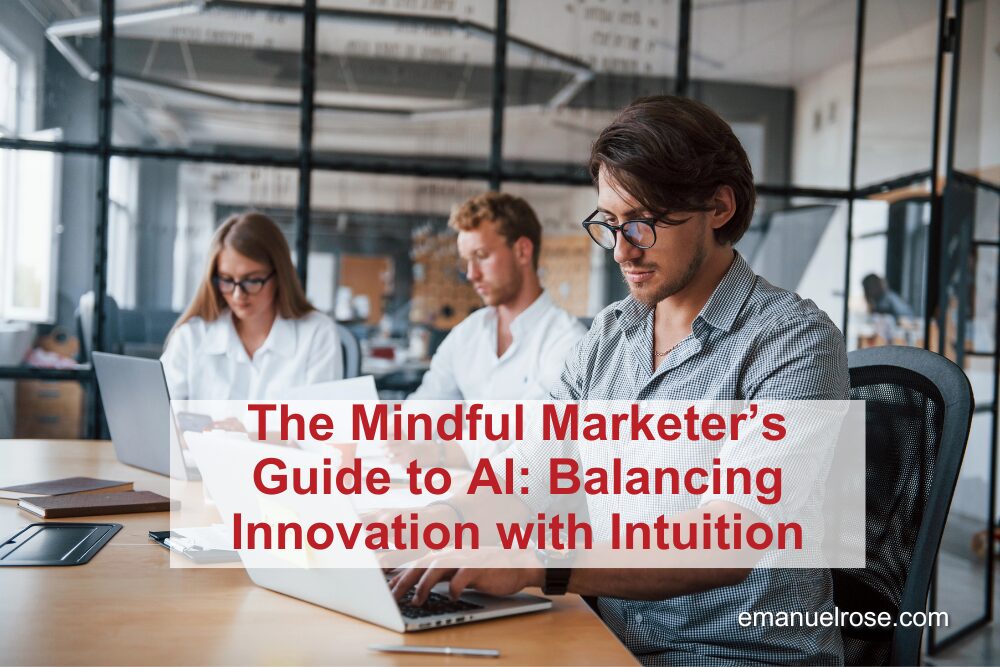Harnessing AI for Strategic Marketing: Insights from Mark Andrews
https://youtu.be/ZsZrSng6MPA As artificial intelligence reshapes the marketing landscape, leaders must embrace new strategies that ensure efficiency and growth. We had a recent discussion with Mark Andrews, founder of AI Prophets, who provided valuable insights into effectively integrating AI into marketing operations. Understanding the Human-AI Dynamic Mark emphasized the necessity of a “human-first, data-second” approach when deploying AI tools and technologies. He pointed out that many organizations remain in the early stages of their AI journey, needing not just technical training but a fundamental mindset shift. “What I want to help them do is change the behavior of their people,” Mark said. Businesses need to focus on practical use cases that make AI accessible and actionable for everyday tasks. To implement these insights, leaders should begin by assessing their daily workflows to identify areas where AI can reduce repetitive tasks and enhance decision-making. For instance, tools like Zapier can automate mundane processes, saving valuable time. Departments can explore integrating AI-powered platforms that enhance their reporting capabilities, such as utilizing ChatGPT to generate insights from data or create summaries from complex reports. Understanding the Human-AI Dynamic Mark emphasized the necessity of a “human-first, data-second” approach when deploying AI tools and technologies. He pointed out that many organizations remain in the early stages of their AI journey, needing not just technical training but a fundamental mindset shift. “What I want to help them do is change the behavior of their people,” Mark said. Businesses need to focus on practical use cases that make AI accessible and actionable for everyday tasks. As artificial intelligence reshapes the marketing landscape, leaders must embrace new strategies that ensure efficiency and growth. We had a recent discussion with Mark Andrews, founder of AI Prophets, who provided valuable insights into effectively integrating AI into marketing operations. Understanding the Human-AI Dynamic Mark emphasized the necessity of a “human-first, data-second” approach when deploying AI tools and technologies. He pointed out that many organizations remain in the early stages of their AI journey, needing not just technical training but a fundamental mindset shift. “What I want to help them do is change the behavior of their people,” Mark said. Businesses need to focus on practical use cases that make AI accessible and actionable for everyday tasks. Fostering a Proactive Data Culture The future of marketing lies in an organization’s ability to foster a proactive data culture. Mark discusses approaching data like an iceberg: what is visible on the surface often obscures deeper insights that are vital for informed decision-making. Organizations should ensure that every level of the workforce understands and effectively utilizes data, enabling them to respond swiftly and pivot in response to market changes. In practical terms, this means creating accessible training modules on data literacy and AI usage for employees. Leaders can utilize frameworks from previous successes, integrating simple tools alongside tailored training to fit the specific needs of their departments. This fosters a more substantial alignment between data capabilities and business strategies, ensuring that every employee can confidently leverage AI in their day-to-day responsibilities. Industry-Wide Transformations Driven by AI Different industries are at various levels of AI adoption, which frames how companies strategize around marketing operations and customer personalization. For retail, automation through AI helps manage inventory and respond to consumer trends, ultimately leading to enhanced customer experiences. Meanwhile, in sectors such as finance and healthcare, AI enables faster decision-making and more personalized services, leveraging historical data to better understand customer needs better. The implications are clear: as organizations adopt a human-centric approach to AI, they will be better equipped to personalize customer experiences and innovate their offerings. Through dedicated training and the right tools, businesses push for greater efficiencies and superior outcomes. Next Steps for Leaders Marketing leaders should prioritize experimentation with AI tools to drive innovation and growth. Start small—identify a single process that can benefit from automation and implement it. Experimenting with tools like Zapier or ChatGPT can uncover hidden efficiencies that have the power to transform workflows. By committing to a mindset of continuous learning and adaptation, leaders can pave the way for their teams to thrive in this AI-driven environment. In closing, as the marketing landscape continues to evolve, the emphasis on human-first AI strategies, combined with practical training and accessible tools, will not only enhance operational capabilities but also drive lasting growth. Guest Spotlight: Mark Andrews LinkedIn: linkedin.com/in/markwilliamandrews Company: AI Prophets aiprophets.com Watch the podcast episode featuring Mark Andrews: youtu.be/ZsZrSng6MPA
Harnessing AI for Strategic Marketing: Insights from Mark Andrews Read More »

